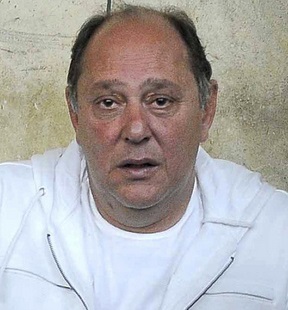
By Ahmed Al-Malky
An Islamist protest in support of President Mohamed Morsi took place in Nasr City on Friday, where members of newly established ‘National Coalition to Support Legitimacy’ defended the Muslim Brotherhood’s second-choice presidential candidate by calling on Egyptians to recognise his legitimacy.
The protest started shortly after noon prayers, and a stage was erected near the Rab’a Al-Adwia mosque in Nasr City. The protesters, who at the time of writing numbered in the tens of thousands, chanted in support of Morsi and stressed his legitimacy comes from the will of the people and the ballot box that elected him.
A flier handed out by Al-Jamaa Al-Islamiya’s Construction and Development Party highlighted the call to participation, quoting opponents of the current regime as reasons for participating in the pro-Morsi protest.
“Legitimacy is a red line,” the flier reads, “It is time to support legitimacy and Sharia’.” The flier quoted former prime minister and presidential candidate Ahmed Shafiq saying “after 30 June Egypt will not be ruled by an Islamist regime. It also quoted an inflammatory alleged remark by George Ishaak, the head of the Kefaya Movement, saying 30 June is “the day Islam ends.”
Other political figures such as Mohamed ElBaradei and Hamdeen Sabahi were accused of siding with figures from the former regime to bring down Morsi’s administration. The Israeli defence minister was quoted as saying that the objective of the Tamarod campaign is to prove “Islam is not the solution.”
Protesters streamed into Rab’a Al-Adwia square by the hundreds, waving Egyptian and Islamic flags.
Ramadan Ahmed Embabi is a pro-Morsi supporter from Beni Suef, and although he is not a member of the Muslim Brotherhood and is frustrated with the state of the country, he does not blame the president for the current crisis. Ahmed Embabi said if Egyptians were to oust the president now, the next president would have no chance in consolidating power among his people.
“I have 100% confidence in President Morsi,” Ahmed Embabi said. “He could do much more if people gave him the chance.” He added that the main problem facing Egypt at the moment is the opposition’s unwillingness to talk to the president, and that fears of the regime remnants and former presidential candidates (referring to Sabahi, ElBaradei and other opposition leaders) are the greatest obstacles to progress in Egypt.
Another protester voiced his displeasure with Western media coverage of Egypt. The protester asked why Western media was not supporting the democratic process in Egypt, concluding that it was due to the Islamist rise to power and Western fears of a strong Islamist Egypt.
A taxi driver in Nasr City expressed his discontent with both sides of the political spectrum, complaining that the Egyptian people were sheep who follow the orders of their leaders without hesitation. He added that he feared a bloodbath on 30 June and said he hoped that the army would intervene and hold on to power indefinitely.
A member of Al-Gamaa Al-Islamiya said he believed that there were good people in the opposition groups, who could push the country forward if they disengaged from their current political affiliations to engage in dialogue with the presidency.
On the main stage, figures from several political parties addressed the crowd. The speakers called for unity behind Morsi’s legitimacy and discredited opposition leaders.
The protest comes in response to the anti-Morsi protests called for on 30 June, marking the one-year anniversary of his inauguration as president.
